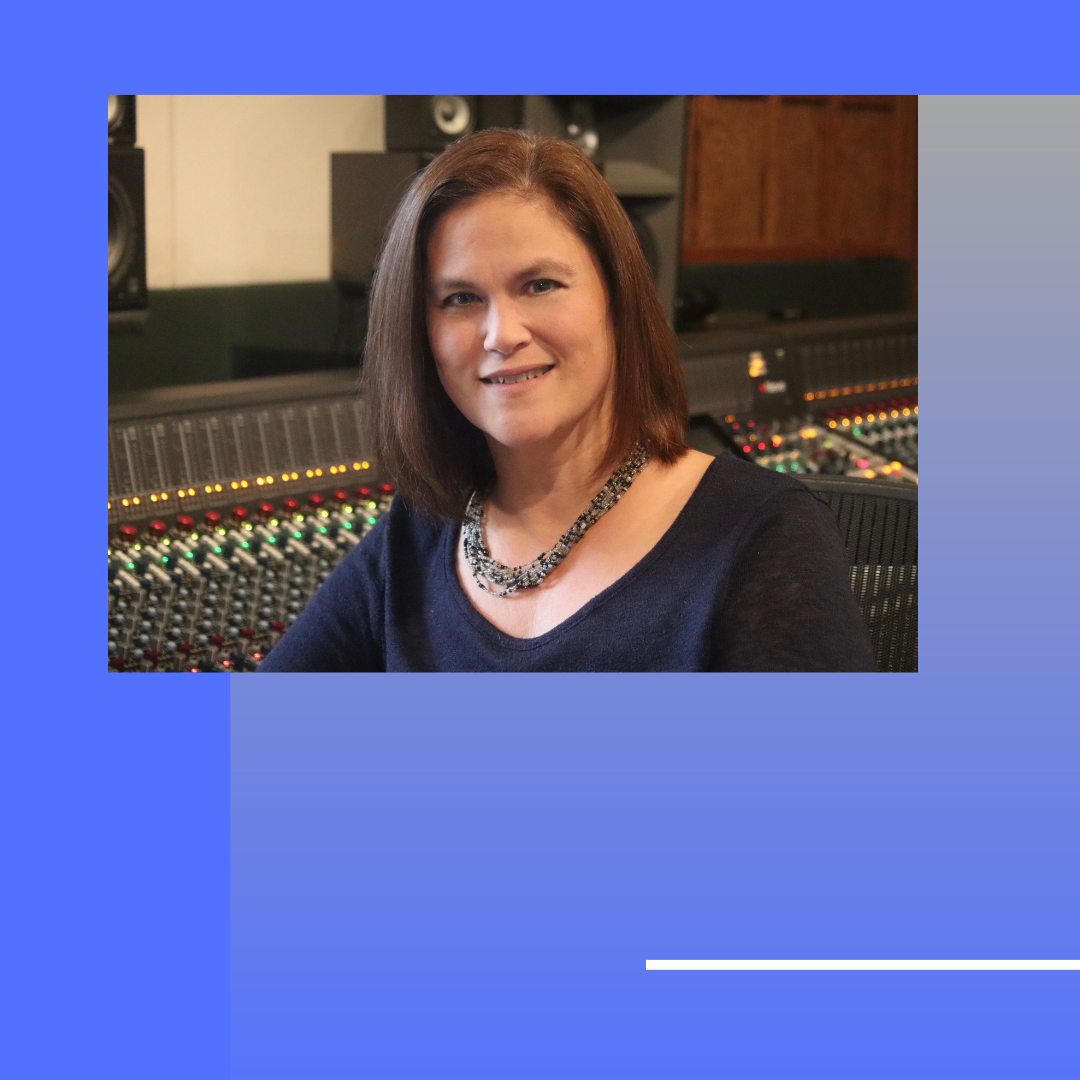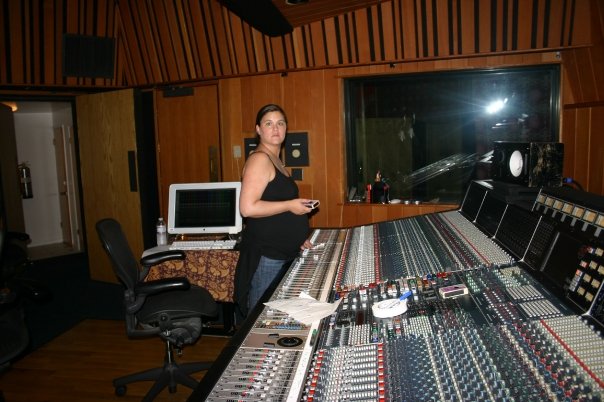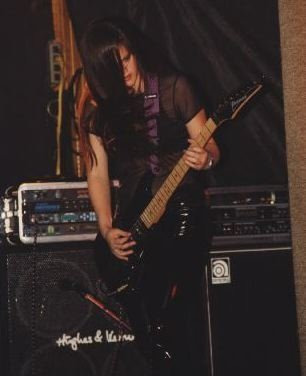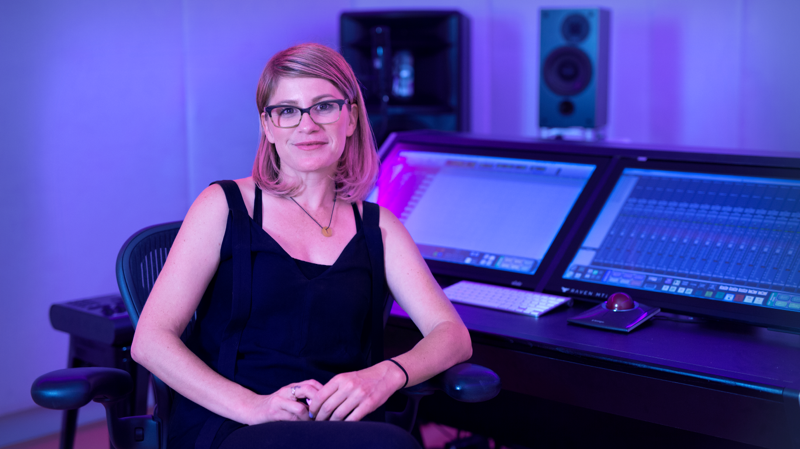Someone once said about Erika Earl, “the building could be on fire, and no one would know because all nine sessions would keep going.” She has made more than a few musicians, engineers, and producers feel good about broken gear or a tough situation.
Earl has been working in the professional audio industry for 15 years. She is currently the Director of Hardware Engineering at Slate Digital. She has worked in key positions in the audio industry, from being the Chief Tech at The Village Studios to running live sound at Coachella, to performing quality control and repair for leading audio manufacturers including Drawmer, Focusrite, Tube-Tech, and Daking. Her passion for audio was ignited at the age of 12 when she was introduced to the recording studio. Her mother booked time for her older sister to record a few American standards in Spanish and brought her along. Earl was captivated by the studio environment and the recording process: “Anyone who has ever walked into a professional recording session with talented artists knows she never wants to leave that room. It’s fucking cool to experience the moment of capture!” Earl knew she wanted to be a part of that process and her technical skills came from realizing she needed a reason to be in the control room beyond a simple desire to be there.
Earl’s education has been non-conventional. While she attended public school, her greatest influence came from observing her immigrant mother who in addition to having five kids, established, owned, and operated several sewing factories: “I think growing up in a factory environment informed my understanding of what ‘work’ is: long hours and sometimes under grueling conditions. I thought I better choose a job I like doing if it’s always going to be that hard.” Her audio engineering education has come from mentorships and a willingness to fail. “I have learned the most from just doing it. I have audited audio production and engineering classes at various institutions over the years. I studied math in college. I volunteer a lot, write and record as much as possible, make giant mistakes, and frequently spend late nights studying up and teaching myself. Many of my friends and mentors are serious musicians, engineers, and sound people. They encourage me to be still and listen, which I have discovered is the best way to learn more. I try and make it a point to be the dumbest and least talented person in my friend circle.”
Erika started as a studio intern working for free. Producer and engineer David Nichols gave her a key to his studio and allowed her to observe and participate as much as she was able during sessions. At night she produced live shows with friends. “My cousin and I had a club night series called Lipgloss and Cigarettes. I would book the bands and arrange the sound production while she was in charge of the venue and creative art direction.
Earl finally got a chance to mix live and get paid for it from Randy Lopez who would hire her to run FOH at a venue in Tucson, Arizona called Plush. Erika says, “I was a pest and just started showing up all the time until one day the sound guy didn’t show up, and there I was foaming at the mouth ready to go. I think Randy appreciated my enthusiasm and mentored me until I could fly on my own.” She also interned with Craig Schumacher at Wavelab, while attempting to fix guitar pedals and cables at Bevins Guitar shop. At the same time, she worked at Epic Cafe serving coffee and vegan scones before sunrise. “Sometimes I would work at every place in town on the same day. A band would be touring and buy a cup of coffee from me in the morning, visit the studio in the afternoon, and then I would run their live sound at night. It was a trip.”
Earl says that at every trade show and conference she made a point of introducing herself to as many manufacturers as possible. “I met Jonathan Little of Little Labs at a TapeOp conference, and he hired me after a working interview. I worked there during the day and then recorded at The Distillery at night. If I wasn’t recording, I was running live sound, or stalking rehearsal spaces in LA looking for bands to work with me.”
After a few years working in LA, she got pregnant and quit everything to go home to Arizona and be closer to her family. She knew she wanted to go back to work, but studio hours and a baby seemed like a miserable combination. “I just didn’t think I was ready to commit to that lifestyle again, so I cold called Tony Marra at Thermal Relief Design on a recommendation from Jay Fitzgibbons (DSPdoctor, LLC) and asked Tony for a job. Thermal Relief was the only authorized service center for many brands I respected at the time. Tony did not have a position available, but I somehow managed to impress him into meeting with me. I moved to Las Vegas and started at Thermal Relief as a tech, receptionist, shipping & receiving person and was eventually promoted to Technical Service Manager.”
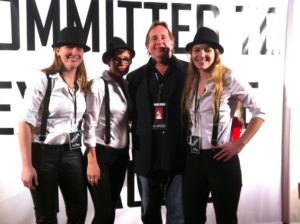
Village Techs and Ed Cherney
During her time at Thermal Relief, Earl was invited by Brad Lunde (Trans Audio Group) to work as a tech for his Audio Underground Roadshow which is a traveling high-end audio showcase. At one showcase hosted at The Village Studios Earl was introduced to Studio Manager, Tina Morris. One of Earl’s goals was to work in a large classic commercial studio, and The Village was a perfect opportunity to do just that. About a year after their first meeting, Morris was interviewing Earl for the Chief Tech position. Earl accepted the job and moved back to LA. Earl was in charge of the technical staff and all of the electronics in the building at The Village, including the phone system and internet. “The place is three stories and has four commercial recording studios, eight or nine private studios, two NEVE 88Rs, one NEVE 8048, a NEVE 8068, a Digidesign Icon which we upgraded to an AVID S6, an auditorium, a ballroom, and loads and loads of gear. At one point we had an all female tech staff which was pretty radical. Outside of servicing and maintaining the gear, I was responsible for assisting engineers with any technical support they required, training, and developing new processes and systems. I also helped create the forensic archiving department, design a cam lock and distro for live concerts, build two new rooms, and completely re-wire another”.
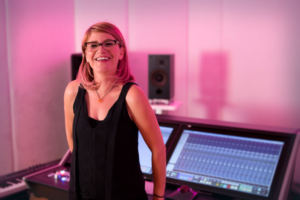 Erika is now at Slate Digital and is the Director of Hardware Engineering, where she directs teams and engineers in the technical development of hardware products from concept to launch. She also manages manufacturing and supervises logistics and hardware support. “I sort of perform double duty as Product Manager / Director of Hardware Engineering. Prototyping is one of my favorite things to do. I also really enjoy standards testing. I find radiated emissions fascinating. Working at Slate Companies and keeping up with Steven Slate, Fabrice Gabriel (Slate Digital), Alex Simicev, and Sergey Danilov (Slate Media Technology / Steven Slate Drums) is insanely rewarding. Their ideas and skills are what I imagine X-Men are made of. Our teams are working at the edge of technology using critical, complex, and creative strategies to come up with innovative solutions and tools for everyone. Every role at our company is held by a high-level high-output individual, and that makes it so thrilling to be a part of. I love being surrounded by so many gifted and talented people.”
Erika is now at Slate Digital and is the Director of Hardware Engineering, where she directs teams and engineers in the technical development of hardware products from concept to launch. She also manages manufacturing and supervises logistics and hardware support. “I sort of perform double duty as Product Manager / Director of Hardware Engineering. Prototyping is one of my favorite things to do. I also really enjoy standards testing. I find radiated emissions fascinating. Working at Slate Companies and keeping up with Steven Slate, Fabrice Gabriel (Slate Digital), Alex Simicev, and Sergey Danilov (Slate Media Technology / Steven Slate Drums) is insanely rewarding. Their ideas and skills are what I imagine X-Men are made of. Our teams are working at the edge of technology using critical, complex, and creative strategies to come up with innovative solutions and tools for everyone. Every role at our company is held by a high-level high-output individual, and that makes it so thrilling to be a part of. I love being surrounded by so many gifted and talented people.”
Erika’s long term goals are:
- Circumnavigate the Earth on a sailboat.
- Work on useful and creative tools and content, related to audio, and new instruments, for Virtual Reality, Augmented, and Mixed Realities.
- Write a song worthy of recording.
- Contribute as much as possible, as creatively as possible, in my community and through my work.
What do you like best about your job?
You know what people say “behind every great man is a great woman?” For me, that woman is, Jesse Honig. He’s my right-hand man. In fact, he answered this question for me. After having kids, I have become very selective about work. Anyone who knows me understands how much I enjoy motherhood and contributing to my community. If I am going to spend any time away from my kids, then the work better be worth it. And if I am going to spend more time with any other people than my children, they better be worth it. I feel so lucky to be working with some of the most incredible and inspiring human beings on work I believe in. They are what I like best about my job.
What do you like least?
Working across three different time zones is my least favorite thing about work. I thought after my son turned two I would get to sleep through the night. NOPE. We have engineering teams and clients all over the world.
What if any obstacles or barriers have you faced?
You’ve seen American Ninja Warrior right? You know the moment in the show where they unveil an obstacle and once the athlete gets through it they are awarded a new obstacle…yeah, I think in many ways, and very much by my own design, I have chosen paths which have led to bigger and badder goals which are inescapably riddled with bigger and harder obstacles.
How have you dealt with them?
Practice, patience, and a relentless desire to succeed. A good sense of humor has saved me on more than one occasion. I think it’s extremely important to acknowledge my feelings and then do my best to let anything that doesn’t serve me or the project go. I try and focus on the next logical move and take small steps until I have overcome or maneuvered past the barrier. I rely heavily on my support team of friends and colleagues. Therapy helps a lot. Meditation helps a lot. Exercise and diet help a lot. At the end of each day, my kids remind me of what really matters.
Advice you have for other women and young women who wish to enter the field?
Oh dear, this will be cheesy and probably echo every inspirational calendar you have ever read, but I mean it: take care of yourself. Don’t believe everything you think. Especially when that inner voice is telling you “you suck!”. Define your boundaries. Stand up for yourself even if that means you might lose the job. There will be others. Be honest. Listen more than you speak. Be thoughtful in everything you do, no matter how big or small the job or task is treat it with the same care. Look to your right, look to your left, and make friends. These are your peers and your future community. I am a big believer in you get what you give, and a goal without a plan is just a dream. Never make excuses.
What side of the glass do you prefer? The creative side or the recording side or tech side?
I feel like this is somewhat of a trick question because that’s assuming that being an artist is non-technical and being an engineer is non-artistic which is not often the case. I am a results oriented person by nature. If that means making everyone in the room feel okay about broken gear to continue the creative process, I am happy to bring relief. If that means staying up all night to fix said broken gear, I will do it. Setting up and getting tones are just as thrilling to me. Want to write a song? Come over! I also think creating intuitive interfaces which expose engaging parameters of more complex systems remains one of the most interesting types of work as far as bridging STEM to humanities and the arts. I believe artists and engineers are more alike than different.
Must have skills?
Attention to detail. A “can do” attitude. Must be kind and willing to listen. Admit your mistakes promptly and without emotion (cry later, problem solve first!)
Favorite gear? APx515, Coles 4038, Hakko 888, Flickinger console, ATR 102, Slate MTi2, VMS One, Snap-on anything, Ampex MM1200, Scully 280, RCA BA-6A, M49, Slate Control, I could go on forever!
How do you juggle being such a bad ass in the industry and being a mom?
Wow, thank you! First thing is maintaining that illusion; kids are a lot of work! I have also worked for some incredibly understanding and flexible employers. I sort of feel like kids are on a suicide mission until they are like ten. They see an outlet as a perfect target for a fork! Being a mother is my favorite job. I don’t know, we all have our lives and responsibilities. I just find ways to do the things I want to do, and I start by believing I am capable of it.
